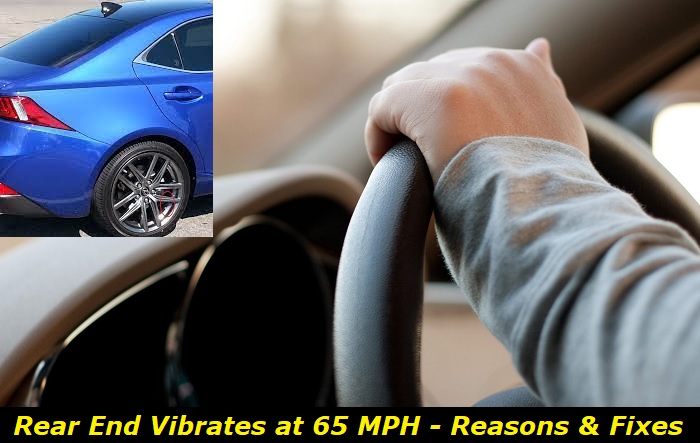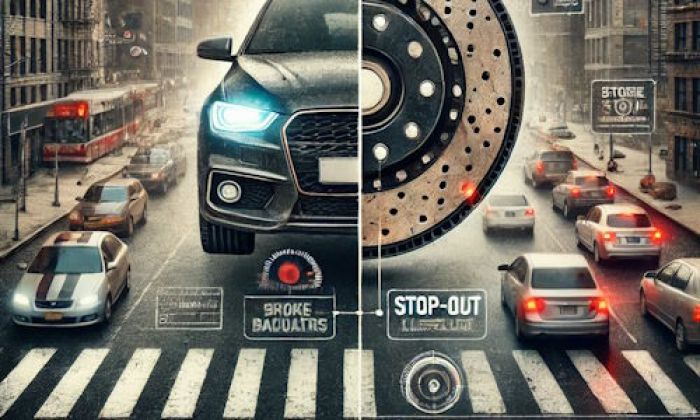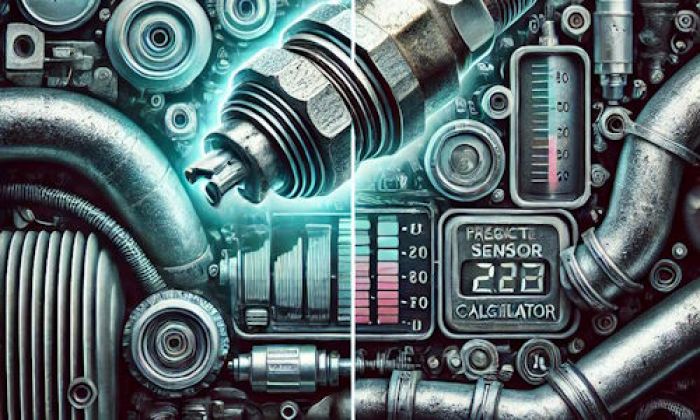The car may vibrate at speeds higher than 65 MPH because of bad tires, unbalanced wheels, poor alignment, suspension or brake problems, and car body problems. The vibration may also be one of the specific problems of your model and you should check for any recalls or service bulletins that may help you solve the issue.
Rear suspension problems highlights
- Level of importance:medium
- Common reasons:road potholes, speed bumps, accidents, normal wear
- DIY inspection:possible but very complicated
- DIY repair:usually,impossible
- Average price in shops:$250 - $800
- Average time:3 - 6 hours
- If ignored:fatal failure, no drive, expensive repairs

Spotting rear-end vibration in your cat at high speed
So, first of all, you need to understand how you spot this problem. What are the symptoms and the key points that you may outline when this happens? It's important because this will help you locate the actual problem. If you go to the repair shop and tell the mechanic everything you've spotted, this will help them cut the time of diagnostics and this will affect the bill.
So, here's what you may need to notice:
- Is the car going smoothly and well at a lower speed?
- Does the vibration only appear at 65 MPH and then disappear?
- Does the car keep vibrating at any speed after 65 MPH?
- Do you feel any problems with traction?
- Do rear passengers feel the vibration more than you?
- How are you sure this is all about the rear end?
It's quite hard to spot the actual source of vibration. Maybe, the front wheel is freaking out but you feel this as the rear-end vibration and this makes the problem quite misleading. This is especially bad if you want to repair your car on your own. Without proper experience, you may spend days and weeks diagnosing the rear end of your car and replacing one part after another. While the problem is in the front suspension.
So, let's learn more about the possible reasons for this issue.
Tire and wheel problems - the first thing to check
Vibration at high speed is connected with tires and wheels in about 90% of cases. In many other situations, the vibration will be noticeable at any speed. But wheels can work quite well at city speed but then make you pale and hold your steering wheel like crazy on the highway.
Here are the possible problems you should check:
- quality of tires - bad cheap tires may vibrate whatever you do because it's just impossible to balance them correctly;
- worn-out tires - this is especially possible for unevenly worn tires that start vibrating naturally at high speed;
- badly aligned wheels - although rear wheels are not usually aligned, they may lose their alignment when springs and struts are bad;
- balance weights are off - when your wheels are balanced, special weights are attached to them, but when they are lost, the car may start vibrating;
- damaged tires - if you go into a deep road pit, the tire may be damaged and develop a kind of lump that will make it vibrate when rotating.
Whenever you feel vibration at high speed, the best idea is to stop your vehicle and check the tires and wheels. You may try to spot any damage, uneven wear, total wear, etc. If this explains your problem, you need to find the nearest tire service and ask them for help.
Make sure you change tires when necessary without driving till they are totally worn out. Also, buy good and high-quality tires and have them installed in a specialized service.
Suspension issues that may cause vibration
If your vehicle vibrates at 65 MPH and you feel that it's in the rear part of the car, one of the possible culprits is the suspension system. I've already mentioned that struts and coils may cause vibration when they are worn out. They change the position of your wheel and the tire doesn't touch the ground with the entire surface.
Also, the bad wheel hubs, bearings, levers, bushings, and fasteners may cause issues with vibration. For example, the worn-out bearing may let the wheel have some free play. Although it's minimal and will not affect the city driving, at high speed it's very noticeable because any imperfection is a hundred times more important when your car goes at 65 MPH.
Another common thing you should notice is brakes. The braking system in your car may get stuck in a half-activated position and one pad will slightly touch the rotor. While at low speed this will only slightly heat the brakes and will not affect the way the car goes, on the highway, you will feel all the disadvantages of poorly working brakes. Also, the overheating will be critical and may destroy the rotor and the entire braking system.
Can front-end problems seem like rear-end vibrations?
Another thing to remember is that it's not always the problem with the rear wheels. For example, the rear lever of the front suspension may vibrate and you will feel this as the vibration right behind your seat. Maybe, at high speed, this may wrongly seem to be the vibration that originates from the rear part of your vehicle.
Another possible issue is the exhaust pipe. It's quite easy to check and pretty simple to fix. Get under the vehicle and shake the exhaust pipe with your hand (make sure it's not hot first). You may see that some of the rubber parts that connect the pipe to the body of your car are torn and require replacement. Maybe, because of this, the pipe touches the body in some place and vibrates.
If you can't easily locate the problem with the rear wheels, start checking other systems and units of your car that may cause vibration at high speed. Eventually, this will let you locate and solve the problem.
Maybe, it's something else, not the obvious issue with the vehicle?
It's worth checking some other things. For example, something may have got between the threads of one of the rear wheels. It may be a metal nut or a stone. While at low speed you will only hear the clatter if your windows are down, at high speed this will turn into bad vibration because the wheel balance will be changed.
Also, you may try checking some other ideas:
- The things in your trunk are not located in the center. It's important to distribute the weight of the load in your trunk evenly to avoid pressure on one side of the car.
- Wheel bolts or nuts are loose. I had a situation in my life when one wheel bolt was just absent in my car and this causes bad vibrations at high speed - so check this!
- Bad road. Maybe the road you are driving on is just not good and causes vibration of the vehicle at high speed.
- Tire pressure. It's important to control tire pressure in your vehicle. Even slight deviation may easily lead to vibrations and other issues.
I can keep making ideas of what can cause this problem. But you should understand that almost anything can. And so, it's really important to remember all the symptoms and check the most obvious possible problems. Only after that you may go to the shop and ask the specialist to inspect the car.
Can you drive with vibrations at high speed?
If your car vibrates at 65 MPH, you shouldn't keep driving it at this speed and ignore the problem. If you do this, your wheel may fall off in a couple of minutes. So, it may be dangerous to drive a car with such a problem.
Your immediate reaction should be as follows:
- Slow down immediately. Even if you can't stop the car right now, slow down to a safe speed with no vibrations.
- Stop in a safe place where you can inspect the car. It's important to not just stop on a hectic highway.
- Make sure the tires are not worn out completely, the wheel bolts are tightened, the tires are not flat, and there are no visual damages.
- If possible, get under the vehicle and check if there are any easily located problems with the rear suspension.
- Also, inspect the car for any other possible causes of vibration at high speed.
If everything seems to be good, you may keep driving at low speed and get to the repair shop without calling a tow truck. If you managed to locate the issue, call your dealer or a good and trusted repair shop and ask them if you can drive with the problem you've just found.
About the authors
The CarAraC research team is composed of seasoned auto mechanics and automotive industry professionals, including individuals with advanced degrees and certifications in their field. Our team members boast prestigious credentials, reflecting their extensive knowledge and skills. These qualifications include: IMI: Institute of the Motor Industry, ASE-Certified Master Automobile Technicians; Coventry University, Graduate of MA in Automotive Journalism; Politecnico di Torino, Italy, MS Automotive Engineering; Ss. Cyril and Methodius University in Skopje, Mechanical University in Skopje; TOC Automotive College; DHA Suffa University, Department of Mechanical Engineering






Add comment